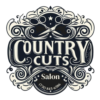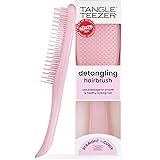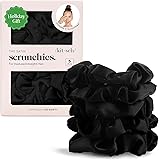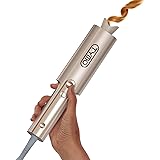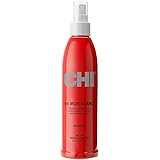Introduction to Hair Health and Nutrition
The health of our hair is intricately linked to our overall wellbeing, with nutrition playing a pivotal role in maintaining its vitality and strength. Hair, often viewed as a reflection of our internal health, requires a variety of essential nutrients to grow and thrive. Without adequate nourishment, hair can become weak, brittle, and prone to damage. This connection emphasizes the importance of a balanced diet rich in vitamins, minerals, and proteins for promoting healthy hair growth.
<pnutritional a="" acids,="" also="" an="" and="" are="" array="" as="" blocks="" building="" but="" can="" components="" consuming="" enhance="" fatty="" fish,="" flaxseeds,="" foods="" foods,="" for="" furthermore,="" growth="" hair="" hair,="" health="" healthy="" hydration.="" improve="" including="" incorporating="" just="" keratin.="" lean="" legumes,="" made="" maintaining="" meats,="" not="" nuts,="" of="" omega-3s,="" overall="" p="" particularly="" predominantly="" promoting="" protein-rich="" proteins="" provide="" scalp="" scalp.
Additionally, vitamins like A, C, D, and E, alongside B-vitamins such as biotin, play crucial roles in hair health. These vitamins support various physiological functions, including proper cell turnover and the production of sebum, which nourishes hair follicles. Minerals, particularly zinc and iron, are equally important, as they assist in transporting oxygen to hair follicles, which is essential for hair growth.
Ultimately, understanding the significant role of nutrition in hair health can lead individuals to make informed dietary choices. By prioritizing a diet rich in essential nutrients, one can enhance their hair’s appearance, health, and resilience, recognizing that what we consume goes beyond our physical bodies, resonating through our hair as well.
Understanding the Hair Growth Cycle
The hair growth cycle is a complex process that consists of three distinct phases: anagen, catagen, and telogen. Each phase plays a critical role in the overall health and longevity of hair. Understanding these stages not only provides insights into hair growth but also highlights how various nutrients can influence each phase.
The anagen phase, also known as the growth phase, can last for several years. During this critical period, hair follicles are active, producing new hair cells that push the old cells out. A healthy diet rich in proteins, vitamins, and minerals is essential for supporting the anagen phase. Nutrients such as biotin, zinc, and vitamins A, C, D, and E contribute to the functionality and longevity of this phase, ensuring that hair grows thick and strong.
<pfollowing a="" adequate="" anagen="" and="" can="" catagen="" cycle.="" dermal="" detaches="" during="" ensuring="" few="" follicle="" follicle,="" from="" hair="" health="" help="" impacting="" in="" inadequate="" intake="" is="" it,="" lasting="" leading="" lengthen="" macronutrient="" maintain="" micro="" naturally="" nutrition="" of="" overall="" p="" papilla,="" phase="" phase,="" potentially="" premature="" production.="" reducing="" risk="" shedding.
The telogen phase is the final stage in the cycle, lasting around three months. At this point, hair growth has ceased, and hair may begin to fall out or be shed. Nutrition is again crucial as commonly, a poor diet can lead to an increased number of hairs entering the telogen phase, resulting in noticeable hair loss. Consistent consumption of essential nutrients, along with proper hydration, can aid in minimizing this natural shedding process, leading to a fuller head of hair.
Understanding the intricate relationship between diet and the hair growth cycle can significantly influence hair health. By supporting each phase with appropriate nourishment, individuals can promote optimal hair growth and maintain the vitality of their locks.
Essential Nutrients for Healthy Hair
The health of hair is significantly influenced by various nutrients that play a vital role in promoting growth, strength, and overall vitality. Among these, proteins stand out as the fundamental building blocks of hair. Keratin, a type of protein, is essential for maintaining hair structure, and an adequate intake can help prevent breakage and promote stronger, healthier hair.
Vitamins are another critical component for nourishing hair from within. Vitamin A, for instance, aids in producing sebum, the natural oil that moisturizes the scalp, preventing dryness and supporting a healthy environment for hair growth. Vitamin C contributes to collagen production, which is crucial for hair structure, while also enhancing iron absorption, an essential mineral for hair health. Moreover, Vitamin D has been linked to hair follicle cycling, potentially reducing hair thinning and supporting new growth. Vitamins E and B also play key roles; Vitamin E aids in improving blood circulation to the scalp, while B vitamins, including Biotin, directly support keratin production and overall hair growth.
In addition to vitamins, several minerals are essential for healthy hair. Iron is vital for ensuring adequate oxygen supply to hair follicles. A deficiency in iron can lead to hair loss and impaired growth. Zinc is another important mineral that aids in tissue growth and repair, and is known to enhance hair strength and texture. Finally, omega-3 fatty acids provide essential oils that nourish the hair and scalp, supporting overall health and preventing dryness.
Integrating these nutrients into one’s diet, through foods rich in proteins, vitamins, and minerals, can promote hair vitality and enhancement. Nutrient-rich foods such as lean meats, leafy greens, nuts, seeds, and fatty fish should be prioritized to support these hair-healthy nutrients effectively.
Foods That Promote Healthy Hair Growth
The relationship between diet and hair health is significant, with certain foods playing a vital role in promoting healthy hair growth. Incorporating a balanced diet rich in specific nutrients can enhance the strength, shine, and overall quality of hair. Below are several key foods known for their positive impact on hair health.
Eggs are an excellent source of protein and biotin, both essential for hair growth. Protein is the building block of hair, while biotin helps in the production of keratin, thereby improving hair’s elasticity and reducing breakage. Including eggs in your meals can thus aid in robust hair development.
Fatty fish, such as salmon and mackerel, are rich in omega-3 fatty acids and vitamin D. Omega-3s promote scalp circulation and provide essential nutrients, enhancing overall hair density. Additionally, these fish contain high-quality protein, which is crucial for maintaining healthy locks.
Nuts and seeds, including walnuts, almonds, and flaxseeds, are packed with antioxidants and essential fatty acids. These nutrients not only nourish hair follicles but also combat oxidative stress that can lead to hair loss. Eating a handful of nuts or sprinkling seeds over salads can effectively boost hair health.
Leafy greens, such as spinach and kale, are full of vitamins A and C, iron, and calcium. Vitamin A is vital for sebum production, which keeps the scalp hydrated, while iron aids in delivering oxygen to hair follicles, promoting growth. Integrating leafy greens into your diet can invigorate your hair from the inside out.
Finally, avocados are a fantastic source of vitamin E and healthy fats. Vitamin E enhances blood circulation to the scalp, which is essential for hair growth. Furthermore, the monounsaturated fats in avocados help maintain moisture levels, reducing dryness and brittleness in hair.
Incorporating these foods into your diet can lead to significant improvements in hair health, showcasing the profound impact that nutrition has on the body’s largest organ.
Foods to Avoid for Optimal Hair Health
Hair health is greatly influenced by dietary choices, and certain foods can hinder the growth and strength of hair. One of the main culprits is sugar. High sugar consumption can lead to an increase in insulin levels, triggering a range of hormonal imbalances that may contribute to hair loss. Elevated blood sugar levels can also lead to the formation of glycation end products, which damage proteins in the body, including keratin – a crucial protein for healthy hair production.
Processed foods pose another threat to hair health. These foods often contain preservatives and additives that can provoke inflammation. Inflammation not only affects overall health but can also harm hair follicles, leading to weakened strands and potential hair thinning. Furthermore, processed foods usually lack essential nutrients, such as vitamins and minerals that are vital for maintaining robust hair.
Excessive alcohol consumption can be detrimental as well. Alcohol depletes the body of important nutrients, especially zinc and vitamins B and C, which are necessary for strong hair. Alcohol can also lead to dehydration, and improper hydration can impact the moisture content of hair, making it appear dry and brittle. Additionally, it can contribute to hormonal imbalances that may encourage hair shedding.
High amounts of saturated fats, often found in red meats and full-fat dairy products, can also negatively affect hair health. Saturated fats can promote inflammation, which may hinder blood circulation to the scalp and ultimately disrupt hair growth. Instead of these fats, incorporating healthier fats from sources like avocados, nuts, and fish is advised as they support overall hair vitality.
By being mindful of their diet and avoiding these detrimental foods, individuals can help promote optimal hair health and enhance the appearance of their locks.
Hydration and Its Role in Hair Health
Hydration plays a fundamental role in maintaining overall hair health, significantly influencing hair texture, growth, and resilience. Water is essential for various bodily functions, and its impact on hair is often overlooked. Adequate hydration facilitates the transportation of nutrients and oxygen to hair follicles, promoting a healthy growth cycle. When the body is properly hydrated, it can effectively produce sebum, the natural oil that protects and moisturizes the hair shaft, thereby enhancing its shine and softness.
On the contrary, insufficient water intake can lead to dry and brittle hair, making it more prone to breakage. Dehydration can weaken hair structures, resulting in a dull appearance and loss of elasticity. Studies have shown that well-hydrated hair exhibits better texture and strength, contributing to overall vitality. Thus, understanding the importance of hydration is crucial for anyone aiming to improve their hair health.
To ensure optimal hydration, individuals should strive to drink an adequate amount of water daily, typically around eight 8-ounce glasses, though needs may vary based on factors such as age, activity level, and climate conditions. Additionally, incorporating water-rich foods such as fruits and vegetables can enhance hydration levels. For instance, cucumbers, melons, oranges, and leafy greens not only provide essential vitamins and minerals but also contribute significantly to daily fluid intake.
Furthermore, it is advisable to minimize dehydrating beverages like caffeinated or alcoholic drinks that can exacerbate fluid loss. Using humidifiers in dry environments can also help maintain moisture levels in the hair and scalp. By recognizing the vital connection between hydration and hair health, individuals can take proactive measures to nourish their locks from within and promote a luscious, vibrant mane.
The Role of Lifestyle in Hair Health
Hair health is influenced by a multifaceted combination of dietary choices and lifestyle habits. While nutrition undeniably plays a vital role in the vitality and appearance of hair, it is essential to recognize that lifestyle factors such as stress management, sleep quality, and physical activity equally contribute to the condition of one’s locks. A holistic approach to wellness that encompasses these elements can lead to improved hair health.
Stress is one of the most significant contributors to hair loss and deterioration. Chronic stress can lead to a condition known as telogen effluvium, where the hair shifts prematurely from its growth phase into the resting phase, resulting in noticeable hair shedding. Managing stress through techniques such as mindfulness, meditation, and regular physical activity can foster a calming effect on the body. This, in turn, can help maintain a healthier hair cycle, allowing for optimal growth and strength.
Sleep quality also plays a crucial role in overall well-being, including hair health. During sleep, the body undergoes vital processes of repair and regeneration, which affect the hair growth cycle. Insufficient or poor-quality sleep can lead to hormonal imbalances that may adversely impact hair follicles. Prioritizing sleep hygiene—such as maintaining a regular sleep schedule, creating a comfortable sleep environment, and limiting screen time before bed—can contribute significantly to healthier hair.
Lastly, regular exercise promotes blood circulation, which is critical for delivering nutrients to the hair follicles. Engaging in physical activities not only aids in reducing stress but also enhances overall metabolic health, ensuring that the body functions optimally. Incorporating moderate exercise into daily routines can yield long-term benefits for hair health, alongside a balanced diet. A lifestyle that harmonizes diet, stress management, quality sleep, and regular exercise fosters an environment conducive to vibrant and resilient hair.
Supplementing Your Diet for Better Hair Health
Dietary supplements can play a significant role in supporting hair health, as they often contain essential nutrients that may not be adequately consumed through regular diets. Among these supplements, biotin, collagen, and various multivitamins are particularly noteworthy. Biotin, a water-soluble B vitamin, is known for its contribution to the growth and maintenance of healthy hair. It aids in the production of keratin, a protein that forms the structure of hair. Regular supplementation of biotin may lead to noticeably improved hair strength and thickness.
Collagen, the most abundant protein in the human body, is also beneficial for hair health. As an important structural component, collagen supports the dermis layer of the skin, which houses hair follicles. Supplementing with collagen may enhance the elasticity, hydration, and overall appearance of hair, leading to a healthier look. It can be sourced from various forms, including powder and capsules, and easily incorporated into daily meals or beverages.
Additionally, multivitamins formulated specifically for hair health often contain essential vitamins and minerals such as vitamins A, C, D, E, zinc, and iron—all of which contribute to hair growth and maintenance. These nutrients work in synergy to improve circulation to the scalp, promote follicle health, and increase hair strength. When integrating supplements into one’s diet, it is crucial to consider the dosage and potential interactions with other medications.
Before starting any supplementation regime, consulting with healthcare professionals such as dietitians or doctors is advisable. They can provide tailored advice based on individual health needs and dietary restrictions. Careful integration of these supplements can lead to improvements in hair quality and overall health, fostering a holistic approach to hair care that nourishes from within.
Conclusion
In evaluating the intricate relationship between diet and hair health, it becomes increasingly clear that what we consume plays a pivotal role in determining the vitality and appearance of our locks. A balanced and nutrient-rich diet not only supports overall well-being but also directly influences hair strength, growth, and shine. Essential vitamins and minerals such as biotin, zinc, and omega-3 fatty acids are critical for nourishing hair follicles, promoting growth, and maintaining a healthy scalp. By incorporating a variety of foods such as leafy greens, nuts, fish, and whole grains into our daily meals, we can significantly enhance hair vitality.
Moreover, hydration is another crucial aspect of maintaining healthy hair. Water aids in the transportation of nutrients to hair cells and helps maintain moisture levels, which are essential for preventing dryness and brittleness. It is also important to understand the impact of refined sugars and processed foods that can contribute to hair issues, highlighting the need for mindful eating habits.
By recognizing the importance of a holistic approach to hair care that includes dietary adjustments, individuals can take proactive steps towards achieving healthier hair. This entails not only being conscious of specific nutrients but also adopting a lifestyle that embraces variety and moderation in food choices. As advocates of healthy hair, we encourage readers to evaluate their eating habits; making conscious dietary changes can lead to improvements in hair quality. Ultimately, investing in our nutrient intake paves the way for nourished hair, reflecting our commitment to overall health and well-being.
